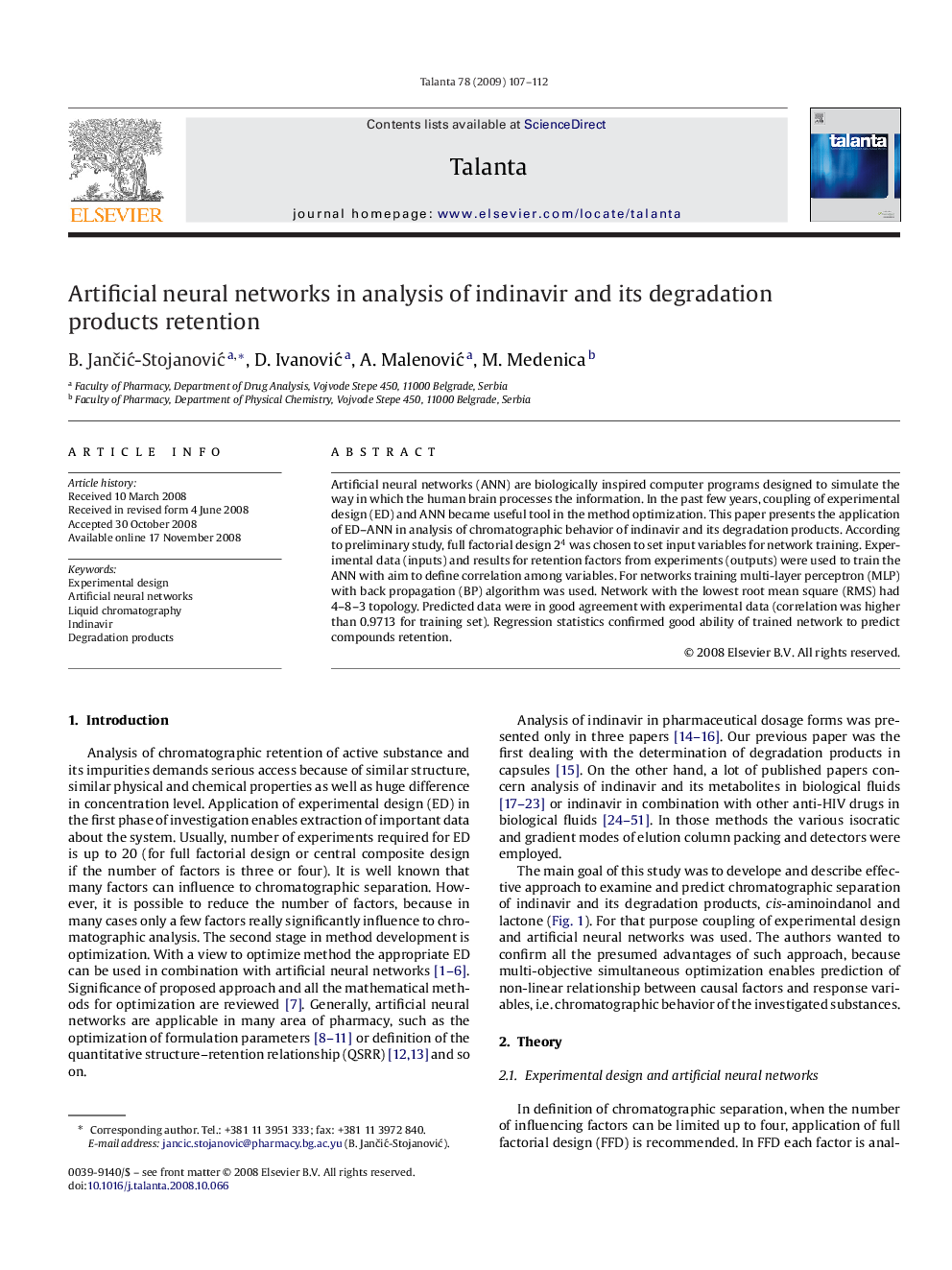| Article ID | Journal | Published Year | Pages | File Type |
|---|---|---|---|---|
| 1245104 | Talanta | 2009 | 6 Pages |
Abstract
Artificial neural networks (ANN) are biologically inspired computer programs designed to simulate the way in which the human brain processes the information. In the past few years, coupling of experimental design (ED) and ANN became useful tool in the method optimization. This paper presents the application of ED-ANN in analysis of chromatographic behavior of indinavir and its degradation products. According to preliminary study, full factorial design 24 was chosen to set input variables for network training. Experimental data (inputs) and results for retention factors from experiments (outputs) were used to train the ANN with aim to define correlation among variables. For networks training multi-layer perceptron (MLP) with back propagation (BP) algorithm was used. Network with the lowest root mean square (RMS) had 4-8-3 topology. Predicted data were in good agreement with experimental data (correlation was higher than 0.9713 for training set). Regression statistics confirmed good ability of trained network to predict compounds retention.
Keywords
Related Topics
Physical Sciences and Engineering
Chemistry
Analytical Chemistry
Authors
B. JanÄiÄ-StojanoviÄ, D. IvanoviÄ, A. MalenoviÄ, M. Medenica,
